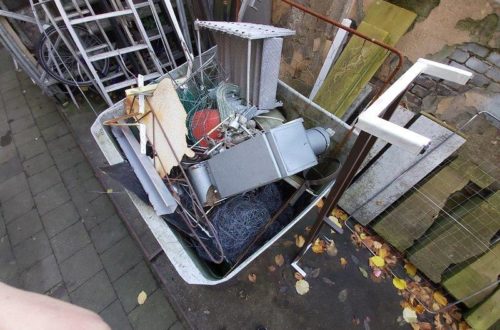Five impulses for a successful energy transition – from knowledge to action
• Social contract 2045 to achieve climate goals
• Clear policy decisions and more government funding needed
The Essen-based energy company E.ON presented "Five Impulses" for a successful energy transition in Berlin on Thursday. They are the result of a series of discussion events with experts from society, business and politics, which E.ON has facilitated as host since February 2023. Joschka Fischer, Felix Matthes and Matthias Machnig were among those who contributed.
Energy policy issues were discussed, but also social issues raised by the war of aggression on Ukraine and the resulting energy crisis. The discussions focused on questions of energy security and independence, energy market design and the affordability of energy as well as the role of the state. The aim of the discussions, some of which were controversial, was to draw up an energy policy "charter", which has now been compiled in the policy paper "Five Impulses" for the energy of the future. *)
E.ON CEO Leonhard Birnbaum: “The acceptance of the energy transition among the population must not be lost. We cannot afford a pause in the energy transition, because climate change does not take a break either. With the E.ON Top Level Talks, we are giving the public debate a strong, broadly supported foundation.”
Maja Göpel: “At the moment, the willingness of political parties to reach a future-oriented understanding seems to have reached an all-time low. It is therefore all the more important that social actors take responsibility and offer constructive spaces for dialogue on the challenges and opportunities of the socio-ecological transformation.”
The "Five Impulses" for a successful energy transition in a nutshell:
1. The aspiration to achieve climate neutrality by 2045 requires an agile energy industry target triangle.
The idea of a perfectly equilateral energy triangle – aiming at environmental and climate compatibility, security of supply and affordability – corresponds to an idealised approach and must give way to a dynamic view. This involves temporary distortions when changing political contexts, especially geopolitical upheavals, lead to a (temporary) reprioritisation. Nevertheless, the goal of climate neutrality by 2045 must not be lost from focus.
2. A resilient energy system needs diversification, adaptability and sustainability.
An energy system that is as resilient as possible to crises and external geopolitical disruptions is a basic prerequisite for achieving climate neutrality. Resilience criteria include diversification in the procurement of raw materials and technologies, adaptability in order to adjust the transformation path at short notice until 2045 in the event of unforeseeable changes, and sustainability, which leads to greater acceptance of the energy transition and reduces dependence on fossil imports.
3. Deficits in the market design must be remedied; the Energy Only Market (EOM) must be intelligently supplemented by state flanks.
In the short term, Europe needs a new market design that reflects the energy industry dynamics of the coming years and offers planning security for all players. This includes incentives for the efficient provision of generation and flexibility capacities that are economically fair and regionally reasonable. 4.
4. In the transformation phase, the Energiewende needs more state funding and clear decisions on balancing and distribution issues.
The political goal of climate neutrality by 2045 is not achievable through the market alone, while at the same time ensuring supply and affordability. Therefore, the state must set framework conditions so that the transition to a climate-neutral, competitive and socially balanced economy succeeds. In this target picture, free competition is to enable markets to become more efficient again. Irrespective of this, massive investments are necessary on the path to climate neutrality, which the state can stimulate and leverage, but which it must also support itself. To this end, the energy transition must be given a larger budget as an "investment in the future". The decision of the Federal Constitutional Court of April 2021 points the way forward by granting climate protection a freedom-securing effect for future generations.
5. From knowledge to action – we need a social contract 2045.
To achieve the goal of climate neutrality in 2045, Germany needs a general consensus across all democratic parties and social groups that is sustainable over decades. A Social Contract 2045 can serve this purpose. It needs a process moderated neutrally by consensus that shapes it, explains it and describes the steps of implementation. In this process, it is important to act quickly: The parties of the political centre – in the broadest sense – should feel obligated to conclude this contract as a basic consensus before the energy transition is completely caught in the rhetorical crossfire of populist parties.
*) The "Five Impulses" are the result of the preceding discussions and explicitly do not represent an E.ON position. They are intended to stimulate the social debate on how to shape the energy world of tomorrow.
This press release may contain forward-looking statements based on current assumptions and forecasts made by E.ON Group Management and other information currently available to E.ON. Various known and unknown risks, uncertainties, and other factors could lead to material differences between the actual future results, financial situation, development or performance of the company and the estimates given here. E.ON SE does not intend, and does not assume any liability whatsoever, to update these forward-looking statements or to align them to future events or developments.
E.ON SE
E.ON-Platz 1
40479 Düsseldorf
Telefon: +49 (201) 18400
Telefax: +49 (211) 4579515
http://www.eon.com/
Telefon: +49 (151) 16310-889
E-Mail: christian.drepper@presse.eon.com
![]()




